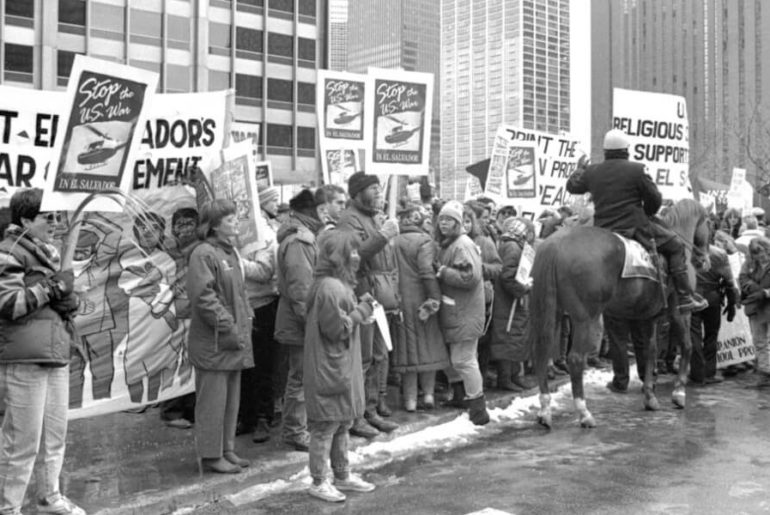El Salvador has one of the highest murder rates in the world, making deportations a near certain death sentence. A recent Human Rights Watch report tracked hundreds of cases of deportations since 2013 and found that 138 individuals were killed after being removed from the U.S. to El Salvador since 2013. El Salvador also has very high rates of disappearances, therefore the group estimates that the number of those killed is much higher.
From 2012 to 2017, asylum applications from Salvadorans jumped nearly 1,000 percent — from roughly 5,600 to over 60,000. By 2018, Salvadorans made up the largest nationality of pending asylum applications in the U.S. at more than 101,000, while over 129,000 were attempting to seek asylum in other countries. Yet only 18.2 percent of Salvadorans were recognized for asylum by the U.S. from 2013-2019.
The report also tracked more than 70 cases in which those deported back to El Salvador either disappeared or were subjected to sexual assault, torture and other violence from gangs such as MS-13. In a majority of cases, HRW found a clear connection between killings or violence upon their return and the reason these individuals fled the country in the first place.
Since 1990, the U.S. government has recognized those seeking asylum from countries like Sudan, Nicaragua, Haiti and El Salvador and has granted “Temporary Protected Status” to Salvadorans living in the U.S. The Clinton administration however briefly allowed TPS to expire in the mid-1990s, a decision that contributed to the growing gang violence in the country.
But the Trump administration attempted to dismantle those protections in 2018, leading to a landmark class action lawsuit led by 14-year-old Crista Ramos. Ramos’ mother, who has lived in the US since she was 12, would be subject to deportation if TPS was revoked. A federal district court in California has temporarily blocked the Department of Homeland Security’s efforts to terminate TPS.
U.S. Interference Has Driven El Salvador’s Violence For Decades
El Salvador’s perpetual and ongoing violence has troubling roots of U.S. involvement, stretching back to the Reagan administration. The implementation of protected status followed El Salvador’s brutal civil war in the 1980s — a war largely funded by American dollars. Behind Egypt and Israel, El Salvador received more aid from the U.S. in the 1980s than any other country.
Over 75,000 civilians were killed during the war. Even after the bloody El Mozote massacre of December 1981, in which nearly 1,200 men, women, and children were murdered, Congress continued to approve funds to El Salvador. U.S.-backed security forces were responsible for upwards of 85 percent of the 70,000 deaths and 10,000 disappearances during the 12-year war.
Over the last decade, U.S. officials have apprehended over half a million Salvadorans attempting to cross into the country. As the HRW report concludes, Trump administration policies — including Migration Protection Protocols, asylum bans, and cooperation agreements— are placing migrants from El Salvador in direct harm. Report recommendations include immediate repeal of such policies, and calls for Congress to enact a moratorium on funding for DHS, ICE, and CBP, as long as the agencies continue to detain and deport asylees seeking safety.

